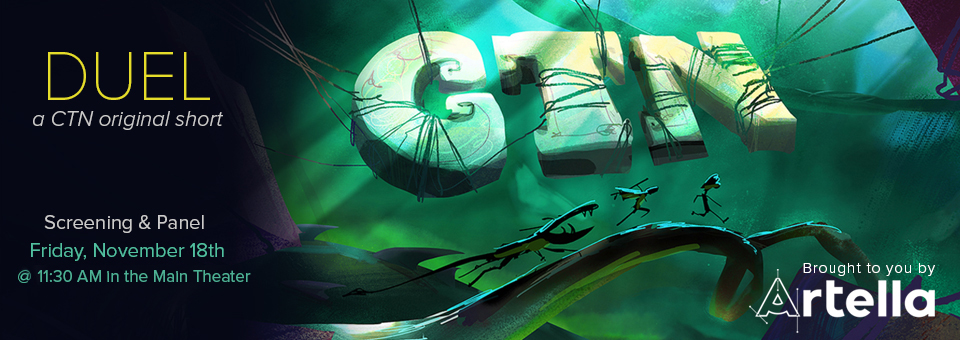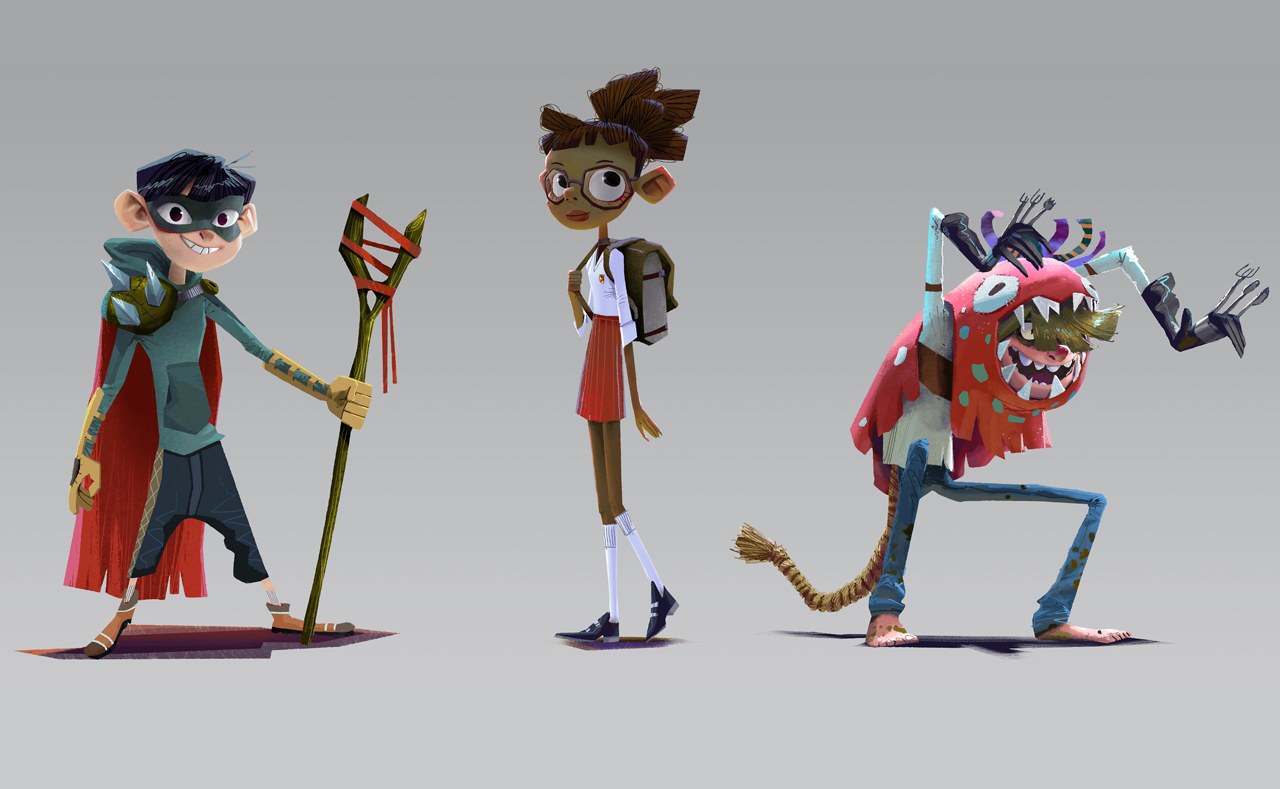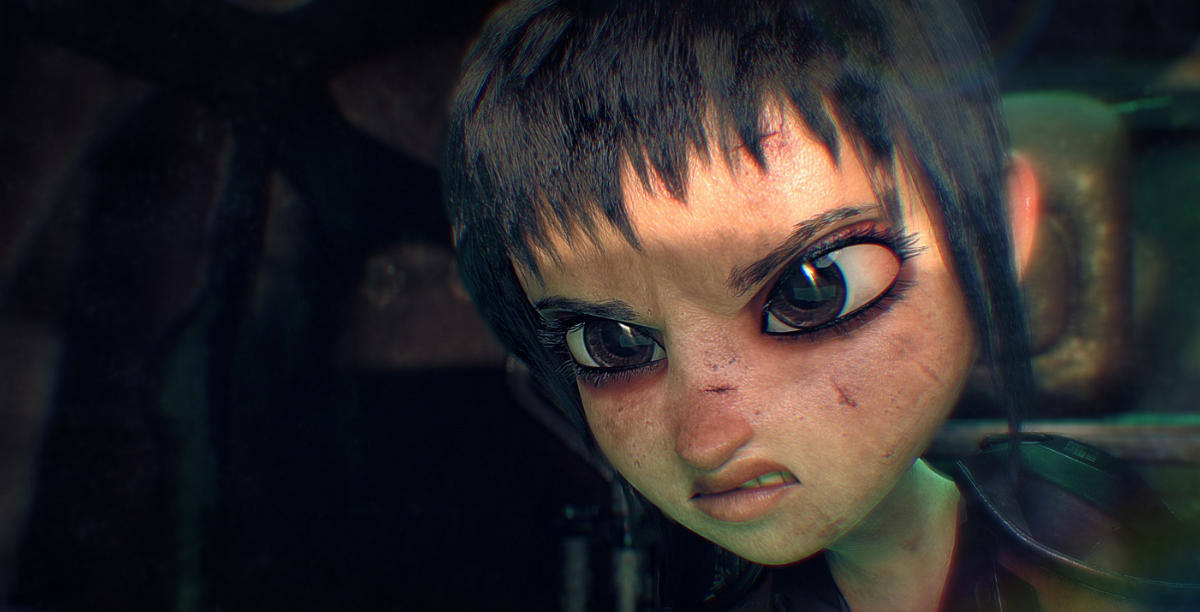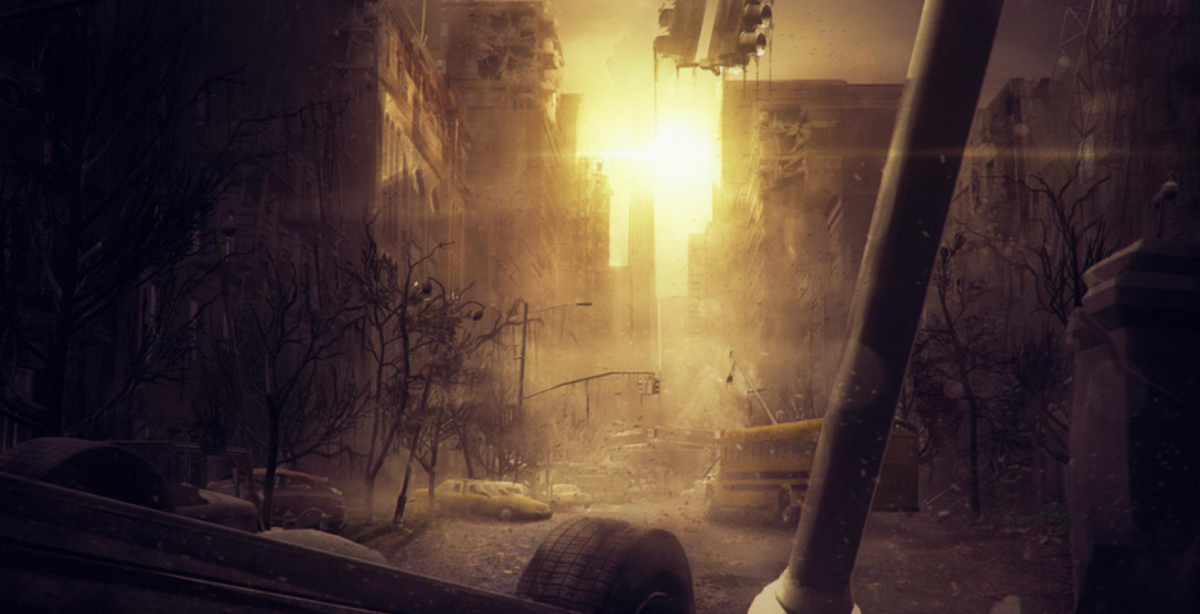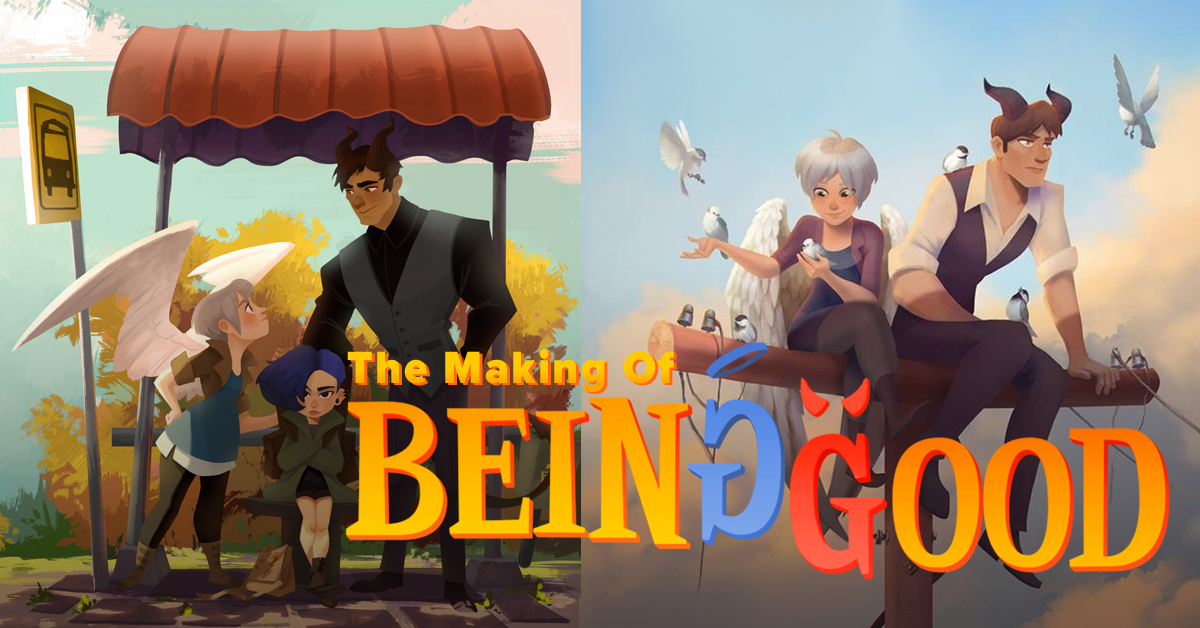Sophia rigged several characters on DUEL while Zee animated many shots.
DUEL is an original short film being created for the CTNx animation expo through the Artella platform and will air on Friday, November 18th at 11:30 AM in the main theater.
Artella: Tell us a little bit about the characters of DUEL both from a rigging and animation standpoint.
Sophia: Together with Juan Diego Lugo we had to rig 4 characters for the short. Three humans and one creature. I took the responsibility for the human characters and Juan concentrated mainly on the Beast, on which he did a great job. I think the animators had fun animating it!
I developed a Modular Rigging System for the studio I am working at (DAYWALKER Studios) and was allowed to use it to set up the characters for DUEL (see video below). The system has all necessary modules to create a biped character including the face. Therefore I only needed to implement a couple of additional modules (mainly for the clothing) to cover the other parts of the characters.
With those modules finished and after completing the skinning it was possible to rebuild the rigs from scratch if needed. Which comes in handy if changes are made on the model during production, which happens all the time, and did happen on DUEL too.
Zee: From an animation standpoint, I was really excited to animate these characters. The rigs we got from Sophia and Juan were great, and they were both fast to respond and find solutions to any issues that came up.
I animated seven shots of the Beast and Hero Boy. The Beast was definitely more of a challenge with his giant head, exaggerated proportions, and long tail which added a great flow to his motion! The fast rig allowed me to block in his motion quickly which was great. Getting the arcs working on his big feet and long tail took a bit more time. For the Hero Boy, it was really fun to work in stepped keys for blocking and to do keyframe polish for his hair and cape. My regular work is often realistic and integrated with mocap and dynamics, which doesn’t allow for a stepped method of blocking. I really enjoyed this project for allowing me to return to that.
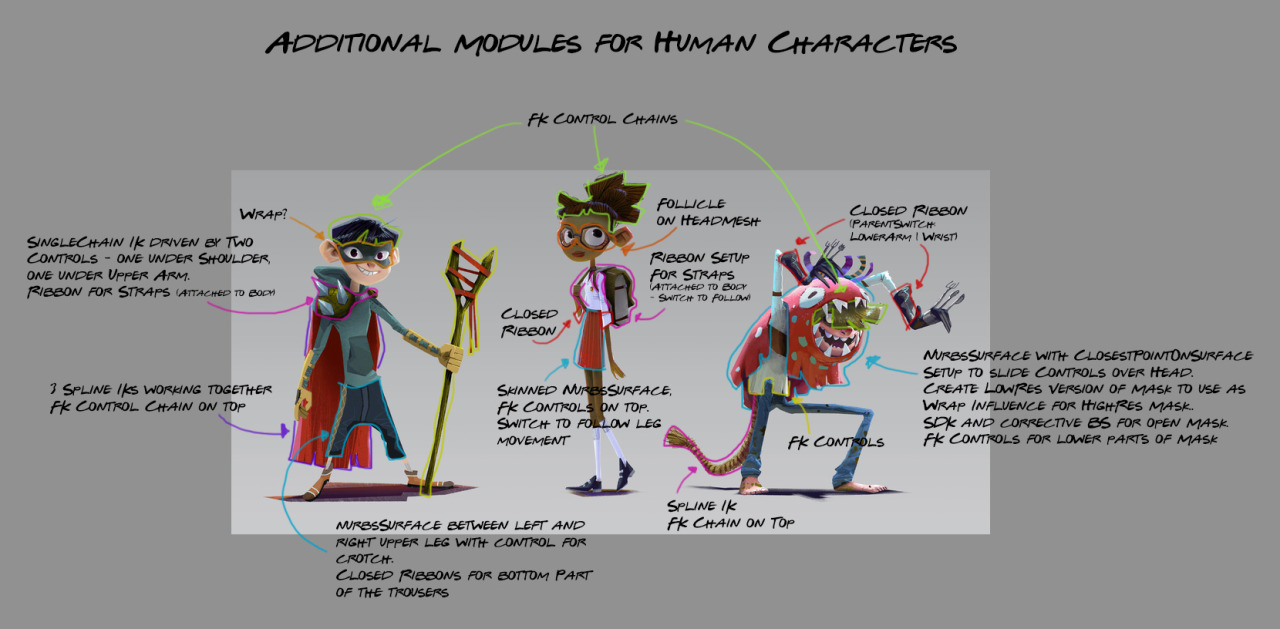
Artella: What were some of the best parts of working with a distributed team and seeing these characters come to life for the first time?
Sophia: For me personally it was having the possibility to work with a bunch of talented animators from all over the world and getting really constructive feedback. And, of course it was amazing to see the characters in action, to watch what the animators were able to achieve with them.
Following the Artella feed on the project was daily fun too, seeing the project grow and how much effort everybody puts in it was just great. And not only the project grew, but the size of the team as well. I think we are nearly 50 people now working on the project.
Zee: I have been pretty blown away with the quality of work on this project, from the very first piece of concept art to now seeing final renders coming through. It’s pretty amazing to be able to work internationally on a project, and of course we needed Artella to do that. Being able to see everyone’s work on the Feed is great – it can be easy to feel isolated when you’re not actually in a room with the people you’re working with, but seeing constant updates of people’s work and being able to comment and have quick feedback on your own work gives you that team feeling.
Zee’s Blocking Pass followed by Final Animation
Getting to animate on a small team and cheering each other on, and making connections all around the world has been really rewarding. Having someone like Zach Parrish (DUEL’s anim supervisor) commenting on my work was an honor, and living in New Zealand, the only way for that to happen was through a production like this.
Artella: What were some of the challenges you had working with a distributed team and how did you overcome them?
Sophia: I initially thought that the different time zones could be problematic. But it actually worked pretty smoothly. The only thing you need to make sure is to test your stuff properly before submitting it. Because it might cost somebody else on your team (in a different timezone) a whole workday if you submit something broken shortly before you go to bed.
I think communication and keeping everybody in the loop is the hardest part with a distributed team. We started off with email, but it got impossible to keep track even after a short period of time, so we switched to Slack which turned out to work pretty nicely.
Zee: I also wondered about the time zones and was pleasantly surprised how little of an issue they were. Slack and Artella were a great help in that regard for keeping up communication. I was also consistently impressed by how present Tim Rudder, our director, has been. He has kept the whole ship on course. And in terms of time zones, if I did need to wait a day for something, there was always enough to do to continue making progress.
Artella Tech Support was there for us as well when issues would come up.
Rig test by DUEL animator Zach Baharov
Artella: You guys had a lot to do in such a short amount of time? What tips can you provide others who are looking to keep their projects on a focused schedule?
Sophia: I think the most important thing is to get yourself organized. Do not overestimate the workload you can handle. If you are working full-time, there is only limited time to work on a side project like DUEL, because unfortunately you have to eat and sleep.
Try to estimate the time you need to finish your tasks as realistic as possible and then add a buffer to it. Also, if you are not able to meet a deadline, communicate it as soon as possible! So that your team members have the chance to either help you out or adapt their schedule to the delay.
Zee: There’s a lot of places for creativity in animation, but the schedule isn’t one of them! My general rule for making a successful schedule is to think about each task, determine how much time I genuinely think it will take to complete, and then double that time. It’s especially important when you are doing a project outside of work – a side project is competing with EVERYTHING in your life and there are a lot of pressures on your time! If you have factored in a bit of cushioning, you will be able to stick to your schedule and help keep the project on target.
Artella: Where do you think the future is headed for the virtual studio and distributed productions? Where do you think it could go?
Sophia: I think the virtual studio will gain more and more importance. There is so much potential. Suddenly you are able to gather talented people from around the world – even on short notice – as they do not have to move to work on the projects.
In my opinion Artella is a helping a lot on minimizing the negative sides of a distributed production. All the data and information the artists need are bundled and well structured in one spot, it is getting even more interesting.
Zee: Duel has been a clear indication for me that distributed productions are gaining a strong foothold in the industry. I see it as the future for smaller productions. It would be interesting to see a larger scale use of distributed production, and to see how issues such as large amounts of data, time zone discrepancies, and security would be handled.
Artella: Now that DUEL is nearly complete what’s next for you? Would you consider working on another distributed production?
Sophia: It was a great experience working on DUEL, with such a bunch of incredible people! I would definitely work on a distributed production again. But first I will get back to my normal working hours and enjoy the tremendous amount of time which is freeing up now. I am currently working on the character rigs for a TV series called Worry Eaters, which are technically challenging, and really fun to work with.
Zee: I’ll be coming from New Zealand to the CTN Expo in LA on November 18th, which will kick off a three week vacation for me! After that I will be going to Australia to direct an animation for TED-Ed, the education division of TED Talks. And I can almost guarantee that I will work on another distributed production!
